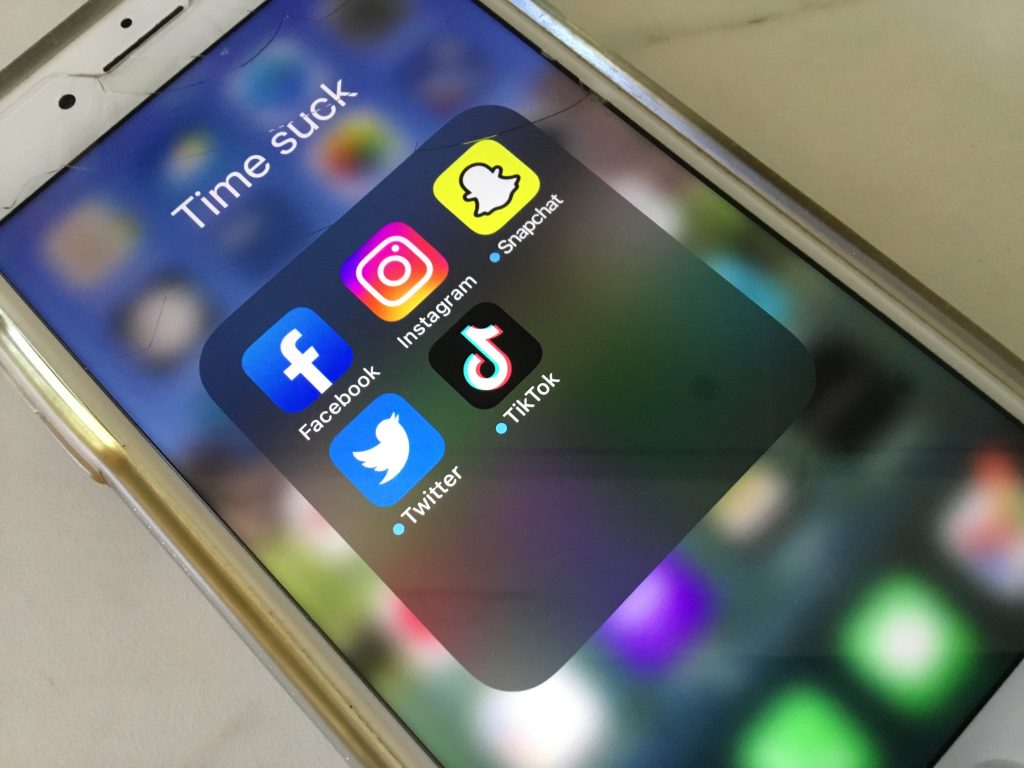
Coronado isn’t alone: School districts nationwide have sued social media companies for their negative impact on students’ mental health as rates of negative self image and mental illness soar among youth.
But social media platforms say they already have parental controls in place and that it is not their place as a private company to police how customers use their technology.
More than 50 school districts in the United States have filed lawsuits so far, including the Coronado Unified School District. The CUSD lawsuit, which was filed jointly with 16 other districts in April, argues that social media platforms “have spent millions to develop and market their products to minors, keeping them coming back for more.”
The “defendants’ algorithms perpetuate content that is harmful to children,” the lawsuit reads. “Social media platforms produce an even greater burden on an already strained system, as the youth mental health crisis continues getting worse, and (social media companies) continue to profit.”
Suicide attempts among teen girls increased by 51 percent between 2020 and 2021, the Center for Disease Control reports.
And, in 2019, one in three high school students – and half of female students – reported persistent feelings of sadness and hopelessness, an increase of 40 percent since 2009, Vivek Murthy, the United States surgeon general, wrote in an advisory on teen mental health.
This trend correlates with the explosion of youth smartphone access and social media use seen in the 2010s. About 24 percent of teenagers reported being online “almost constantly” in 2014-2015, with that number skyrocketing to 46 percent in 2022.
While correlation and causation are not synonymous, and we cannot ignore that the country was rocked by unprecedented circumstances during the Covid-19 pandemic, there is strong research that suggests social media use negatively impacts mental health, especially in youth.
But nobody is arguing against that; instead, social media giants say they are already doing their part to help their youngest users navigate the internet.
CUSD’s lawsuit, however, says otherwise: “School districts are uniquely harmed by the current youth mental health crisis,” the complaint reads. “This is because schools are one of the main providers for mental health services for school-aged children. Indeed, over 3.1 million children ages 12 to 17 received mental health services through an education setting in 2020, more than any other non-specialty mental health service setting.”
The lawsuit seeks financial compensation for the mental health services schools must provide, along with a long-term plan for how social media companies will mitigate their damage.
What role does a private company play in public health?
Social media has entrenched itself into society, and that has raised questions about how much responsibility these platforms, as private companies, have to uphold things like constitutional rights and public health.
But Meta, the company that owns Instagram and Facebook, says it has developed more than 30 tools, including parental controls and content blocking, to support teens on its platforms.
“These tools are focused on giving parents the ability to supervise their children and help them learn online,” said Antigone Davis, vice president, global head of safety at Meta said during its first Summit on Youth Safety and Well-Being in late 2022.
But school districts say the intentional targeting of minor users paired with the platforms’ propensity toward showing negative content renders social media giants responsible for the impact their technology has.
“Each (social media company) designed and marketed their social media platform to be extremely popular among minors,” the lawsuit says.
In the past, tobacco, gun, and opioid companies have faced legal action when critics say their businesses hurt public health. Social media platforms could be the next to face regulation.
The country is still grappling with how to handle social media and its own laws. In February, the U.S. Supreme Court heard arguments in a landmark case that could reframe the way social media is held accountable for its content. A decision is still pending.
The case, Gonzalez v. Google LLC, will determine whether social media platforms are liable for user content published on them if they make recommendations about what content to access. Instagram and TikTok famously show endless video clips to users, trained by an algorithm fine-tuned to keep users watching.
Although platforms are granted immunity from content published by their users under the Communications Decency Act, the Supreme Court case questions whether that immunity applies if the platform is actively recommending content to its users.
In Gonzalez v. Google LLC, the platform in question is YouTube. After a man was killed in Paris in an Islamic State attack, his family sued, saying Google (which owns YouTube) is responsible for making ISIS recruiting easier through its recommended content.
Google argued that it is not liable for its recommendations because it cannot control users’ preferences or interests, which feed the algorithm. Further, pinning liability on platforms could limit freedom of expression, critics say.
As the school lawsuits join this one in the courts, social media’s role in public safety continues to present thorny legal implications that lawmakers are still working through.
Do these cases hold legal merit?
Most of the nation’s social media lawsuits are based in public nuisance law, which is vague. While the tobacco industry lost suits against it in the 1990s based on these laws, other industries – like the gun, oil, and pharmaceutical industries – are still in litigation with theirs.
But Facebook has settled lawsuits before, most recently reaching a $725 million settlement in April for a class-action suit over the company’s misuse of user information.
And Juul Labs, a company that makes e-cigarettes, recently reached a $462 million settlement in a case filed by multiple states accusing it of contributing to the rise in vaping among youth.
But some say the lawsuit will be difficult to win. Mental health is tenuous, and pinpointing the cause of the crisis in youth mental health is impossible, if there even is a single cause and not multiple. For every Facebook whistleblower saying the company knows it contributes to negative youth body image, there’s a global pandemic that could have just as reasonably contributed to the rise in mental health issues.
“It’s clear from the complaint that this suit is about finding a scapegoat for our problems instead of schools trying to teach kids how to better operate online,” said Carl Szabo, vice president and general counsel for NetChoice, an advocacy group that promotes online autonomy. (Szabo was speaking of the Seattle Public School District’s lawsuit, which is similar to, but separate from, CUSD’s.)
No court dates have yet been set in the CUSD lawsuit.
“As multiple state and federal reports have recently concluded, there are harmful effects on young people related to use of social media,” said Karl Mueller, CUSD superintendent, in a statement. “This lawsuit reflects our commitment in Coronado Unified to advocate for the physical and emotional safety of our students, and to pursue any potential resources necessary to support them.”





